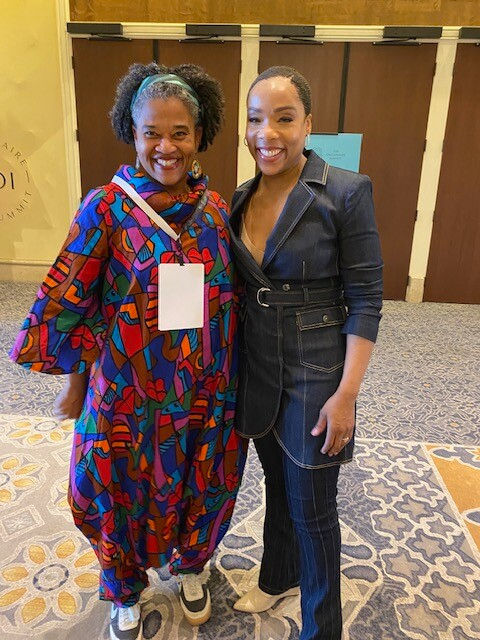Eddie Mensah, Right to Dream Academy
- Makiyah Moody

- May 20, 2023
- 4 min read
Three words: Evolving. Human. Hopeful.
Makiyah Moody (MM): What is your name and what does it mean?
Eddie Mensah (EM): Okay, my name is Edward Kojo Mensah. Edward comes from the fact that my father studied European history, so he gave all of his children royal names from England. And the Kojo, typically in Ghana, means that you're born on a Monday, but if you look at my birthday, I was actually born on a Friday, but my grandfather had passed away before and they didn't want that name to die. He was named Kojo Fenyi so my dad gave me my grandfather’s name as well. So even though I'm a Kofi originally because I was born on a Friday, I go by Kojo. And then Mensah is my father's surname, which also means you’re a third born.
MM: Where's your birthplace and where do you live now?
EM: So, I was born in a small village called Nyakrom in the Central Region of Ghana and I currently live in Ghana.
MM: What's the name of the organization where you work and why did you choose to work there?
EM: So, I work for the Right to Dream Foundation which is an organization that uses football or soccer as a vehicle for social change. It helps students who wouldn't otherwise have the opportunity but are very well talented to find opportunities for success either in football or academics.
I chose to work there because the mission resonates with kind of my personal mission of trying to help create a little bit more justice in the world. I think that, you know, anybody who’s willing to put hard work behind their talents deserves an opportunity to success and Right to Dream seems to be doing that for young people in a country that is very dear to my heart.
MM: What's the best advice that you give to the students you work with?
EM: Oh, wow. I tried to distill it into two words. I think life requires patience and persistence. And those two words sound like they're, you know, contradictory. But I think in moving forward in any endeavor, you have to be really patient, but really persistent in keeping your goal and your aspirations right in the forefront.
MM: Tell me where you're gonna be 10 years from now and some of the goals that you have?
EM: That's a really difficult question. I think, physically, I want to be somewhere that has sunshine, and an ocean and if family is nearby, that's even better. But in terms of work, now that I realized and have really kind of distilled what I think is my purpose to just try and bring more justice into the world, I'm not wedded to any particular space or any particular field.
You know, education and academics is sort of my area of expertise. So, in 10 years, I hope that I will still be involved in work that's trying to bring more justice to the world, working with young people. But I think I'm also looking for opportunities to become a little bit more independent in the work that I do, so in all my life, I've worked with companies and organizations that are doing really, really good work and I'm looking for a little bit more personal autonomy. So, it's sort of a really general answer to your question, because it's, it's causing me to really, really think about where my life will go.
MM: How has travel served as a portal to your transformation? What new ideas or insights has travel sparked for you?
EM: In fact, when you ask the first question about advice, I was going to use the word travel, but I am conscious of the fact that not everybody has the access or the resources to do it that way. But for me, travel has probably been my biggest influence in my development and my education. Because there's nothing like seeing a different culture, experiencing a different environment that's different from what you were raised in or taught to think. And really opening your mind if you are willing to a whole new way of thinking that can really improve and transform the way that you look at life. So I think travel, if you can, is probably the best thing you could do for yourself.
MM: So, I'm excited to be in Ghana this week. What's one thing that you want people to know about Ghana?
EM: I was hoping you were gonna say what's five things. (Laughter.)
MM: Give us five. (Laughter.)
EM: Ghana is complicated. Ghana is really, really complicated. Just like other places that I've been, but I think the dominant theme in Ghana is that peace is probably the most important goal of any of our interactions. Ghanaians are much more interested in keeping the peace than anything else. Sometimes even truth can compete with the need for peace. But we're also a people that love deeply, are deeply connected to each other, and believe in genuine connections with other people.




Comments